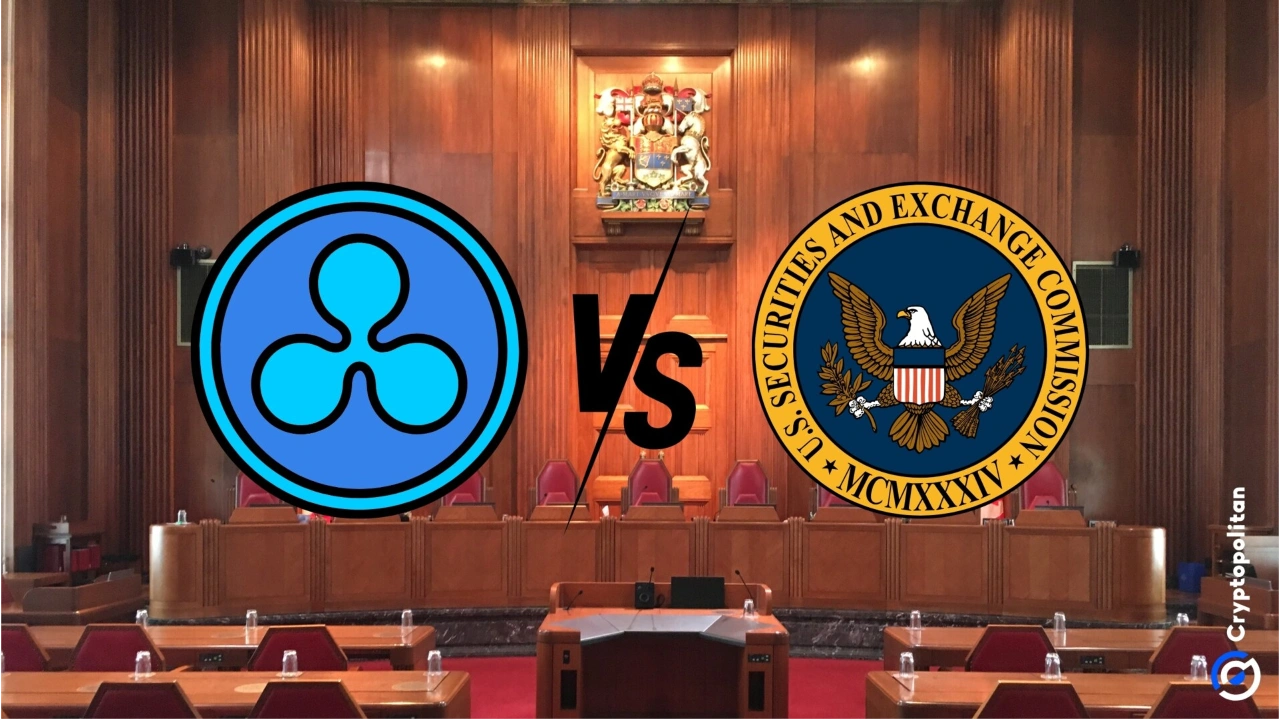The SEC And XRP: Navigating The Commodity Vs. Security Debate

Table of Contents
The SEC's Case Against XRP: Defining a Security
The SEC's central argument rests on defining XRP as an "investment contract," a type of security defined by the Howey Test.
The Howey Test and its Application to XRP:
The Howey Test, established in SEC v. W.J. Howey Co., outlines four criteria for determining whether an investment is a security:
- Investment of money: The SEC argues that purchasing XRP constitutes an investment of money.
- Common enterprise: The SEC claims that XRP investors are involved in a common enterprise due to their shared reliance on Ripple's efforts to increase XRP's value.
- Expectation of profits: The SEC asserts that XRP purchasers anticipated profits derived primarily from Ripple's efforts to promote and develop the XRP ecosystem.
- Profits solely from the efforts of others: This is the crux of the SEC's argument. They contend that XRP investors' profits depend heavily on Ripple's business activities and promotional efforts, not solely on market forces.
The SEC points to Ripple's substantial sales of XRP, arguing that these sales were unregistered securities offerings, violating federal securities laws. They emphasize Ripple's active involvement in marketing and promoting XRP, further supporting their claim that XRP investors relied on Ripple’s efforts for profit.
Ripple's Defense: Arguing for Commodity Status
Ripple counters the SEC's claims, arguing that XRP is a decentralized digital asset functioning as a currency and not a security.
- Decentralized nature of XRP: Ripple highlights the decentralized nature of the XRP Ledger, emphasizing that it operates independently of Ripple’s control. They argue this decentralization distinguishes XRP from assets under the control of a central entity.
- Functional utility as a currency: Ripple stresses XRP’s use as a functional currency for facilitating cross-border payments, highlighting its utility beyond investment purposes. They draw parallels with other cryptocurrencies like Bitcoin, whose status as a commodity is largely accepted.
- Programmatic sales vs. direct investment offering: Ripple differentiates its sales of XRP from direct investment offerings, arguing that programmatic sales lack the investor-issuer relationship central to the SEC's case. They emphasize that purchasers don't have an expectation of profits directly linked to Ripple's future endeavors.
- Comparison to other cryptocurrencies: Ripple’s defense involves comparing XRP to other cryptocurrencies that are generally not considered securities. This argument focuses on the lack of consistent regulatory framework and the need for clearer definitions of what constitutes a security in the crypto space.
The Implications of the Ruling for the Cryptocurrency Market
The SEC vs. Ripple case carries significant implications for the entire cryptocurrency landscape.
Regulatory Uncertainty and its Impact on Investors
The ongoing legal battle creates significant regulatory uncertainty, chilling investment in cryptocurrencies. This uncertainty:
- Impacts investor confidence: The lack of clear regulatory guidelines discourages investment and increases volatility.
- Leads to market volatility: The uncertainty around XRP’s classification has caused significant price fluctuations and market instability.
- Hinders innovation: Regulatory ambiguity discourages innovation within the cryptocurrency space. Companies may hesitate to launch new projects without clarity on the legal landscape.
- Highlights the need for international regulatory harmonization: The case underscores the need for a global approach to cryptocurrency regulation.
Potential Outcomes and their Significance
The potential outcomes of the case are far-reaching:
- An SEC victory: Could lead to increased regulatory scrutiny of other digital assets and potentially stifle innovation within the crypto sector. It might also set a precedent for classifying similar projects as securities.
- A Ripple victory: Could provide greater clarity and potentially foster a more favorable regulatory environment for cryptocurrencies. However, it might not resolve the broader uncertainty about the classification of other cryptocurrencies.
The ruling will undoubtedly shape future regulations, potentially influencing legislation concerning Initial Coin Offerings (ICOs), Security Token Offerings (STOs), and the listing of cryptocurrencies on exchanges. The ripple effects will be felt globally, as regulatory bodies worldwide consider their own approaches to cryptocurrencies.
Navigating the Landscape: Practical Advice for Investors
Investing in cryptocurrencies, including XRP, involves significant risk.
Understanding Your Risk Tolerance
Before investing in any digital asset, including XRP, it is essential to:
- Diversify your portfolio: Don't put all your eggs in one basket. Spread your investments across different asset classes to mitigate risk.
- Assess your risk tolerance: Understand your comfort level with potential losses before investing in volatile assets.
- Understand the regulatory landscape: Stay informed about regulatory developments and potential risks.
- Conduct independent research: Thoroughly research any digital asset before investing. Don't rely solely on promotional materials. Seek professional financial advice.
Staying Informed on Developments
Keeping abreast of the legal and regulatory developments in the cryptocurrency space is paramount:
- Follow legal updates: Monitor legal proceedings and regulatory announcements related to XRP and other cryptocurrencies.
- Monitor market trends: Stay informed about market trends, price fluctuations, and news impacting the cryptocurrency market.
- Participate in informed discussions: Engage in discussions with other informed investors and professionals to gain diverse perspectives.
- Engage in continuous education: The cryptocurrency space is constantly evolving. Continuously learning about new developments is vital.
Conclusion:
The SEC's case against Ripple over XRP highlights the ongoing challenges in defining and regulating digital assets. The outcome of this legal battle will have significant implications for the cryptocurrency market, shaping investor confidence, regulatory frameworks, and the future of digital asset development. By understanding the complexities of the commodity vs. security debate surrounding XRP, investors can make more informed decisions and navigate the evolving regulatory landscape. Staying informed about the ongoing developments in the SEC and XRP case is crucial for anyone involved in the cryptocurrency market. Learn more about the SEC and XRP implications and stay informed about this critical debate.

Featured Posts
-
 Path Of Exile 2 Everything You Need To Know About Rogue Exiles
May 08, 2025
Path Of Exile 2 Everything You Need To Know About Rogue Exiles
May 08, 2025 -
 Paris Walk Off Homer Secures Angels Win Over White Sox Despite Rain
May 08, 2025
Paris Walk Off Homer Secures Angels Win Over White Sox Despite Rain
May 08, 2025 -
 Analysis Uber Stock And The Promise And Peril Of Robotaxis
May 08, 2025
Analysis Uber Stock And The Promise And Peril Of Robotaxis
May 08, 2025 -
 Uber Expands Pet Transportation Services To Delhi And Mumbai
May 08, 2025
Uber Expands Pet Transportation Services To Delhi And Mumbai
May 08, 2025 -
 Bitcoin In Son Durumu Ne Guencel Degeri Ve Analizi
May 08, 2025
Bitcoin In Son Durumu Ne Guencel Degeri Ve Analizi
May 08, 2025
